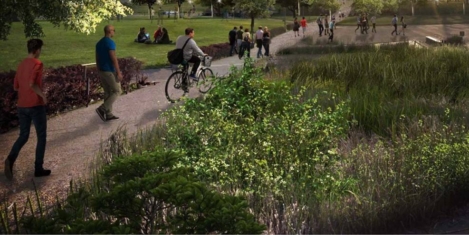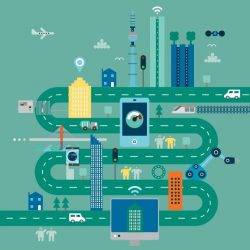To provide the best experiences, we use technologies like cookies to store and/or access device information. Consenting to these technologies will allow us to process data such as browsing behaviour or unique IDs on this site. Not consenting or withdrawing consent, may adversely affect certain features and functions.
The technical storage or access is strictly necessary for the legitimate purpose of enabling the use of a specific service explicitly requested by the subscriber or user, or for the sole purpose of carrying out the transmission of a communication over an electronic communications network.
The technical storage or access is necessary for the legitimate purpose of storing preferences that are not requested by the subscriber or user.
The technical storage or access that is used exclusively for statistical purposes.
The technical storage or access that is used exclusively for anonymous statistical purposes. Without a subpoena, voluntary compliance on the part of your Internet Service Provider, or additional records from a third party, information stored or retrieved for this purpose alone cannot usually be used to identify you.
The technical storage or access is required to create user profiles to send advertising, or to track the user on a website or across several websites for similar marketing purposes.
 A predicted boom in flexible working could contribute £148 billion to the UK economy by 2030, equating to 16 times the cost of the London 2012 Olympics, according to the a socio-economic study of changing workplace practices. The analysis, commissioned by Regus and conducted by independent economists, studied 16 key countries to delve into the state of flexible working now and predictions for 2030.
A predicted boom in flexible working could contribute £148 billion to the UK economy by 2030, equating to 16 times the cost of the London 2012 Olympics, according to the a socio-economic study of changing workplace practices. The analysis, commissioned by Regus and conducted by independent economists, studied 16 key countries to delve into the state of flexible working now and predictions for 2030.








 UK workers are feeling more confident about the state of the economy but it’s making them less inclined to stay in their current jobs, a new survey claims. According to the latest Global Talent Monitor report for the second quarter of this year, from Gartner 18.8 percent of UK employees indicated a very low intent to stay in their current role, the second highest after India (40 percent), and higher than the global average of nearly 12 percent. This is the first time since Brexit that workers reported having an optimistic outlook on the job market, and their own career growth. Nearly 40 percent of UK employees reported somewhat high to high confidence in the economy. When it comes to their personal prospects, employee perceptions have risen steadily over the last year and have increased nearly 4 percent. In fact, job opportunity perceptions in the UK are nearly 1.5 points higher than the global average. However, despite their intentions to move on from their current role, UK employees are still putting in a strong effort in their current roles, with nearly 13 percent of employees reporting a high willingness to go above and beyond in their role, and an additional 43.8 percent leaning towards high.
UK workers are feeling more confident about the state of the economy but it’s making them less inclined to stay in their current jobs, a new survey claims. According to the latest Global Talent Monitor report for the second quarter of this year, from Gartner 18.8 percent of UK employees indicated a very low intent to stay in their current role, the second highest after India (40 percent), and higher than the global average of nearly 12 percent. This is the first time since Brexit that workers reported having an optimistic outlook on the job market, and their own career growth. Nearly 40 percent of UK employees reported somewhat high to high confidence in the economy. When it comes to their personal prospects, employee perceptions have risen steadily over the last year and have increased nearly 4 percent. In fact, job opportunity perceptions in the UK are nearly 1.5 points higher than the global average. However, despite their intentions to move on from their current role, UK employees are still putting in a strong effort in their current roles, with nearly 13 percent of employees reporting a high willingness to go above and beyond in their role, and an additional 43.8 percent leaning towards high.









 Work is the biggest barrier to taking regular exercise a new survey suggests, with 20 percent of people citing being too busy with work as the reason why they are not more physically active. The research, which is published by not-for-profit health body ukactive to mark today’s National Fitness Day 2017 also reveals that only 1 in 10 adults (12 percent) know NHS recommended physical activity guidelines and well over half of Brits spend at least six hours each day sitting down. In addition to shunning exercise, more than 64 percent of adults spend at least six hours each day sitting, be it at work, in front of the TV, commuting or on social media. The average UK adult also spends more than twice as much time sitting on the toilet as they do exercising, with the study of 2,004 British adults by ComRes reveals that British adults say they are on the loo for an average of 3 hours and 9 minutes each week, compared to just 1 hour and 30 minutes spent doing moderate exercise such as fast walking or riding a bike.
Work is the biggest barrier to taking regular exercise a new survey suggests, with 20 percent of people citing being too busy with work as the reason why they are not more physically active. The research, which is published by not-for-profit health body ukactive to mark today’s National Fitness Day 2017 also reveals that only 1 in 10 adults (12 percent) know NHS recommended physical activity guidelines and well over half of Brits spend at least six hours each day sitting down. In addition to shunning exercise, more than 64 percent of adults spend at least six hours each day sitting, be it at work, in front of the TV, commuting or on social media. The average UK adult also spends more than twice as much time sitting on the toilet as they do exercising, with the study of 2,004 British adults by ComRes reveals that British adults say they are on the loo for an average of 3 hours and 9 minutes each week, compared to just 1 hour and 30 minutes spent doing moderate exercise such as fast walking or riding a bike.









September 10, 2018
The evolution of the workplace conversation in ten graphs
by Mark Eltringham • Comment, Facilities management, Technology, Workplace design
Based on Google Trends data since 2004 and without comment.
Main image: Herman Miller Living Office